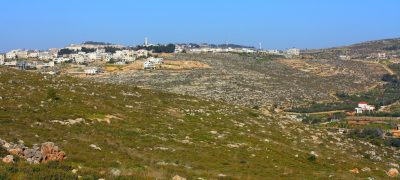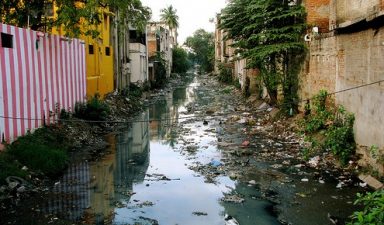 Yemen may be water poor but the country has a rich heritage of managing scare water resources effectively through community co-operation
Yemen may be water poor but the country has a rich heritage of managing scare water resources effectively through community co-operation
The arid and water scarce environment of Yemen makes life very difficult for the average Yemeni. Malnutrition and poverty are real problems which are only exacerbated by a widespread addiction to the narcotic, qat, which requires a lot of water to grow. Sana’a, the capital city of the country has even been tipped to be the first waterless capital in the world. However, not all hope is lost. A new series of videos released at The Water Channel highlight the fact that although many Yemeni communities struggle due to water scarcity, these communities are also resilient and have centuries of experiences conserving water.
The former Yemeni minister for water and the environment, Abdulrahman F. Al-Eryani explains that Yemen has a long history of water scarcity and so have they been forced to work on its sustainable management for many years. “Without sustainable management, Yemenis would not have survived the climate and geography of Yemen,” he adds. However, a growth in the population has meant a rise in the number of drilled wells, which has put real pressure on the groundwater supplies
A recent study by the Water and Environmental centre in Yemen found that the use of groundwater for agriculture shot up from 37,000 ha in 1970 to 400,000 ha in 2005. Another more encouraging find was that many farmers are already working together to regulate groundwater use. A
cross Yemen, there are various water users associations and co-operatives which monitor the use of water and restrict well drilling to help groundwater resources recharge.
In places such as Kharabat, the Al-Sinah valley in Taiz, as well as the Qarada valley, local people are working together to manage their limited water supplies more effectively and also avoid water conflict (which often breaks out into violence) in Yemen. In some instances, the informal networks have been so successful at conserving water effectively that there is a strong case to build them into the formal policy processes.
As Al-Eryani states, “A combination of new, adaptive laws and regulations that build on ancient traditions, that have proven to be successful for thousands of years, is the solution for Yemen.”
To see the short videos looking at these communities and others go to the The Water Channel. MeteMeta have worked with Levert Communications & Culture, Water and Environment, Yemen to produce the video series which are available in English and Arabic.
For more on water issues in Yemen see:
Yemen May Be First Country To Run Out Of Water
Yemen’s Water Crisis Could Worsen Security
Yemen’s Economic and Environmental Problems Linked To Chewing Gat (Qat)



